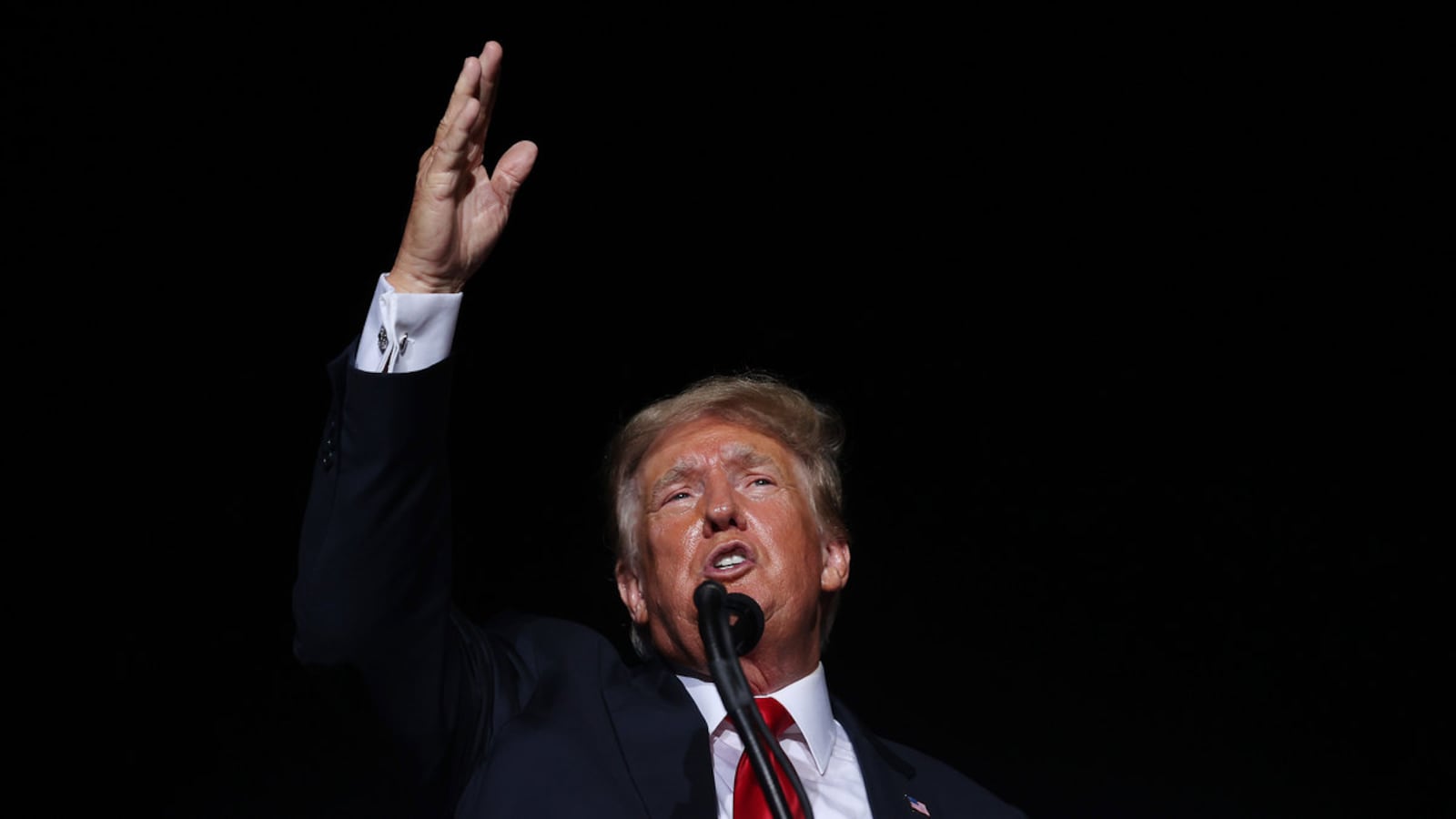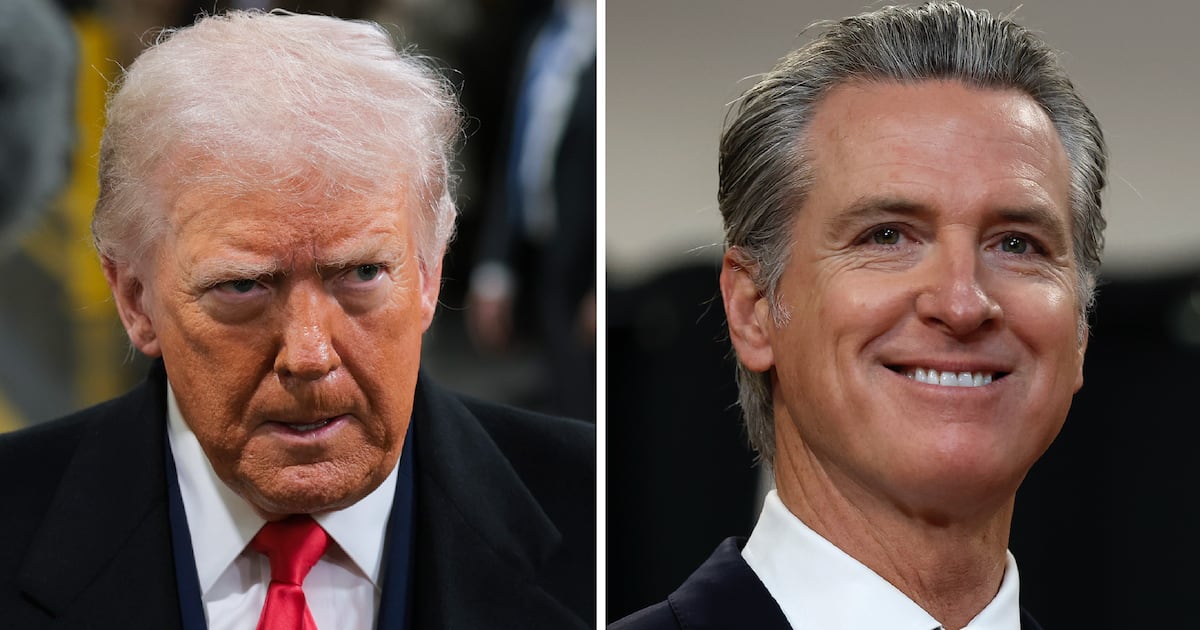Better late than never?
Donald Trump’s former attorney general, Bill Barr, and former national security adviser, John Bolton, are back in the news this week, saying things that—to paraphrase Adam Sandler in The Wedding Singer—could have been brought to our attention YESTERDAY!
By “yesterday,” I mean any time when it might have mattered more. Like during an impeachment. Like during an election. You know, a time when hearing the truth from someone with inside knowledge and credibility might have made a difference. Instead, both waited until they were hawking books to spill the administration’s tea.
However, since Trump remains a very viable threat to run and win in 2024, their eleventh-hour arrival is not pointless.
Barr is out with a new book, One Damn Thing After Another, where he tells us that Trump’s recipe for a good tweet is “just the right amount of crazy,” and that “Trump cared only about one thing: himself. Country and principle took second place.” I’m skeptical that Trump put the country’s interests that high on his list, but at least Barr got Trump’s top priority right.
Meanwhile, uber-hawk John Bolton recently corrected a Newsmax host’s assertion that Trump was tougher than Joe Biden when it came to Russia, saying “it's just not accurate to say that Trump’s behavior somehow deterred the Russians.” Bolton also revealed that Trump “barely knew where Ukraine was,” and said that Trump “was not fit to be president.”
Let’s be honest, whatever their motives, both men knew Trump wasn’t fit to be president before they signed up to work for him.
It’s worth remembering that Barr’s first big mission as Trump’s attorney general was to put out a memo that would save Trump’s bacon by misrepresenting Robert Mueller’s position on whether Trump committed obstruction of justice.
A generous analysis of Barr might surmise that he’s a staunch defender of executive power, who finally balked at helping Trump retroactively steal an election. Barr even suggested in his memoir that Trump’s claims about a stolen election “led to the [Jan. 6] rioting on Capitol Hill”—though he later said he didn’t think Trump’s actions or rhetoric rose to the legal definition of incitement.
Barr and Bolton obviously have a lot in common—in addition to working for Trump, despite knowing he was a rotten president. They’re both in their early seventies. Both had serious credentials before Trump came along—Barr served as attorney general for President George H.W. Bush and Bolton later served as ambassador to the United Nations for President George W. Bush. Both men invited criticism for waiting to tell their full stories in a book. And now, both are publicly sharing with the American public negative details and insights about Trump (although Barr continues to try to have it both ways by praising Trump for his conservative policies and criticizing him for his lack of character).
What, if anything, do these similarities mean?
Are they desperate to remain politically relevant and somehow postpone their own mortality? Are they now, for similar existential reasons, trying to launder their legacies? And if so, what’s the deal with holding back until your book gets published?
Yes, it makes perfect sense from a marketing standpoint. But when the stakes are this high, withholding information until you can profit off of it only undermines their attempts to rehab their reputations.
The biggest similarity, of course, is that these men are neither heroes nor villains. Without flawed Republicans like Barr and Bolton straddling the gray areas (think Sen. Tom Cotton, who went from being among the Trumpiest of senators to defying the 45th president and voting to certify his electoral defeat), things might have been much worse.
For example, once Trump lost the 2020 election, Barr publicly stated that there was no evidence that voter fraud swung the election. In a recent NBC News interview to promote his book, Barr said he told Trump “all this stuff was bullshit about election fraud.”
And according to Bolton, Trump wanted to leave NATO in 2018, but Bolton talked him into staying. They made a difference.
So what does this mean for us? Should conservatives who have consistently stood on principle welcome these (career) “death-bed confessions,” or brush them off as obvious reputational ass-coverings?
It’s tempting to hold grudges, but in the words of former Defense Secretary Donald Rumsfeld, “You go to war with the army you have, not the army you might want…”
Moving past Trumpism will require building a majority coalition that incorporates consistent Never Trumpers with sincere converts and opportunists who determine that the incentives favor virtue over vice.
Indeed, complicated converts more often persuade and win over sinners than saints do.
When it comes to saving liberal democracy, it’s better to get ahead than to get even. By telling their stories—albeit belatedly—John Bolton and Bill Barr do indeed find themselves on the right side of history.








